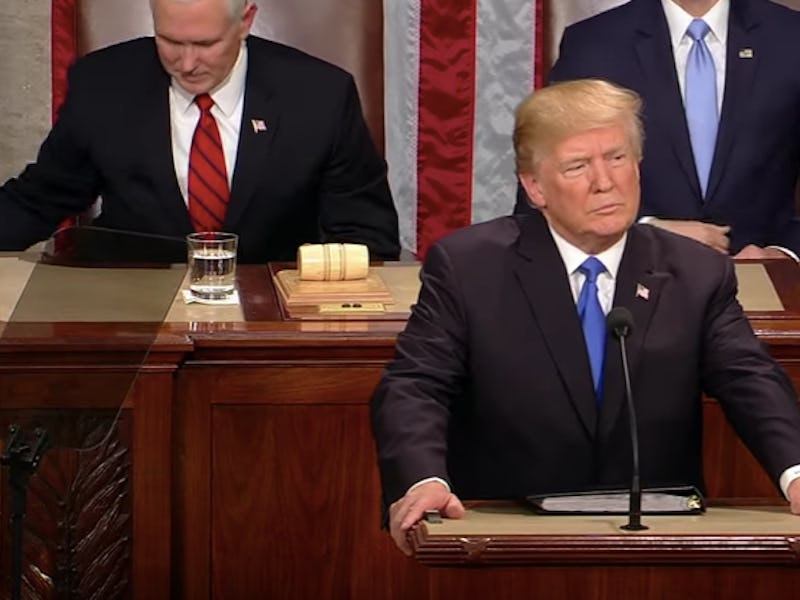Trump Says the Terminally Ill Have the 'Right to Try' Experimental Drugs
But the new policy may do more harm than good.

In a State of the Union address that discussed “clean coal” and carefully avoided Russia, President Donald Trump endorsed the drug bill known as “Right to Try.” The legislation, which would allow patients to receive experimental treatments that haven’t yet been approved by the Food and Drug Administration, was passed by the Senate in August but has since been stalled in the House.
“We also believe that patients with terminal conditions should have access to experimental treatments that could potentially save their lives,” Trump said. “People who are terminally ill should not have to go from county to county to seek a cure — I want to give them a chance right here at home. It is time for Congress to give these wonderful Americans the ‘right to try.’”
Supporters of the Right to Try act, which include Vice President Mike Pence, argue that the FDA rules are unnecessary hurdles for terminally ill patients hoping to seek access to experimental drugs because they have no other treatment options. However, under current law, most terminally patients are granted access by the FDA to unapproved drug products anyway, thanks to the “compassionate use” program. The FDA says that it approved 99 percent of compassionate use requests between 2010 and 2015, and in 2015 only denied 10 of 1,200 requests.
President Trump says terminally ill patients have the "right to try."
The proposed legislation has three key provisions. If passed, it would let people with life-threatening diseases receive unapproved drugs that have only gone through phase 1 testing after receiving approval from a physician. The FDA would not be required to check the drug for adequate evidence of safety, as it does now, and it would be prohibited from using any negative clinical outcomes of the drug as evidence for not approving it at a later time. The final provision is that the bill would protect manufacturers of drugs from any liability if the drugs cause a negative outcome unless willful misconduct or gross negligence is involved.
In a January 2018 report published in the New England Journal of Medicine, Dr. Steven Joffe and Holly Lynch, J.D., of the University of Pennsylvania point out that critics of the bill say that it will effectively undermine the FDA’s authority to oversee experimental drugs. Without any oversight for safety, there’s a chance that using unapproved products could do more harm than good for patients, and decrease their quality of life. There is also a concern that expanding access outside of trials could delay the evidence-based decisions about the use of new drugs.
“Even if access to investigational drugs is limited to patients who truly could not participate in trials testing them, the diversion of resources toward expanded access could have serious implications for the much larger number of patients who would benefit from expeditious approve of effective drugs,” Joffe and Lynch write.
The biggest effect of the bill, they note, is that patients will “lose the benefit of meaningful safety-oriented changes that the agency recommends in 10 percent of expanded access approvals.” Its other effects will be minimal: The barriers to access stated by the White House aren’t actually that high, and while the sponsor of the legislation, Rep. Andy Biggs, says that the compassionate use program is “overly complicated, bureaucratic, and takes too long for approval,” the forms actually take about 45 minutes to fill out, and 99 percent of them are approved.
Part of the reason there is relatively open access to experimental trials is because the FDA was so heavily criticized in the 1980s by activists demanding that AIDS patients have access to experimental medicines. It remains to be seen what will happen to the “Right to Try” act, but similar legislation has already been passed in 31 states.